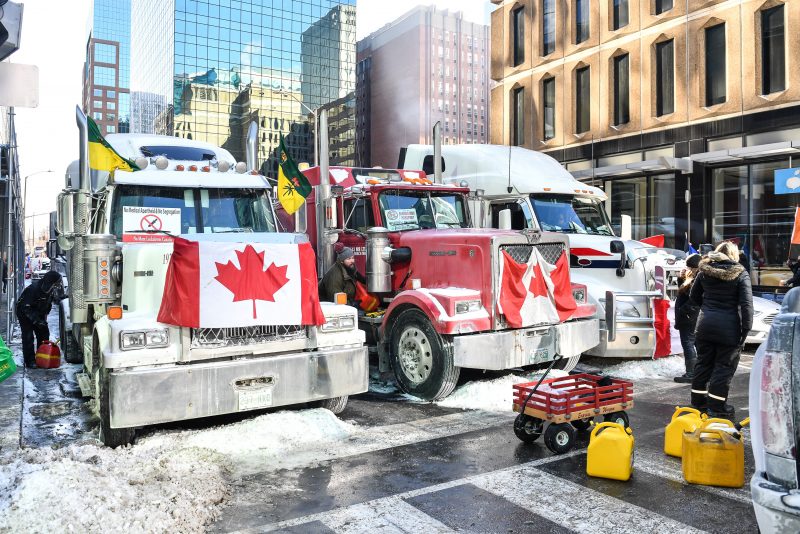
OAN’s Elizabeth Volberding
6:20 PM – Tuesday, January 23, 2024
A federal judge has declared that it was “unreasonable” and “unjustified” for Canada to use its emergency powers to put an end to the anti-government Freedom Convoy protests that transpired in 2022.
On Tuesday, Judge Richard Mosley announced that Canada’s use of emergency powers to put an end to the anti-government Freedom Convoy demonstrations was “unreasonable” and that it violated Canada’s charter of rights and freedom.
However, Canada’s federal government announced that it will appeal the ruling.
The Emergencies Act accommodates the government with additional powers in times of emergency. The government’s use of the Emergencies Act in response to the protests surrounding the “Freedom Convoy,” according to the federal court, “was not justified in relation to the relevant factual and legal constraints that were required to be taken into consideration.”
Three weeks after protests blocked the capital in Ottawa, on February 14th, 2022, Prime Minister Justin Trudeau invoked it.
A protest against the government’s mandate for the COVID-19 vaccine that was designated the “Freedom Convoy” attracted attention from around the world as hundreds of protestors, many of whom were in trucks, took place for weeks near Parliament Hill in Ottawa.
At several border crossing locations around the nation, shorter demonstrations and blockades also occurred.
The emergency powers permitted the government to create prohibitions on public assembly in specific locations and to ban travel going into demonstration areas, including by foreign nations.
“I have concluded that the decision to issue the proclamation does not bear the hallmarks of reasonableness – justification, transparency and intelligibility – and was not justified in relation to the relevant factual and legal constraints that were required to be taken into consideration,” Judge Mosley said in Tuesday’s decision.
The case was prompted by the Canadian Civil Liberties Association and the Canadian Constitution Foundation. Both associations asserted that the demonstration did not “meet the high legal threshold” that was necessary to generate the act.
On Tuesday, Deputy Prime Minister Chrystia Freeland defended the government’s decision, maintaining that it was an “option of the last resort” and that the nation at the time faced a threat to its economic and national security.
“We acted to secure and protect Canada and to secure and protect the national interests,” she told reporters in Montreal,” Freeland said. “It was not an easy time, these were not easy decisions.”
The Canadian government has met the “high threshold” for the act’s use, according to the results of a federal investigation conducted last year.
In leading that investigation, Justice Paul Rouleau described the ruling as a “drastic move” but not a “dictatorial one.”
Rouleau also made a statement in February 2023 during his Public Order Emergency Commission report where he accused the truckers of becoming “lawless.”
“Lawful protest descended into lawlessness, culminating in a national emergency,” Rouleau said.
Stay informed! Receive breaking news blasts directly to your inbox for free. Subscribe here. https://www.oann.com/alerts

